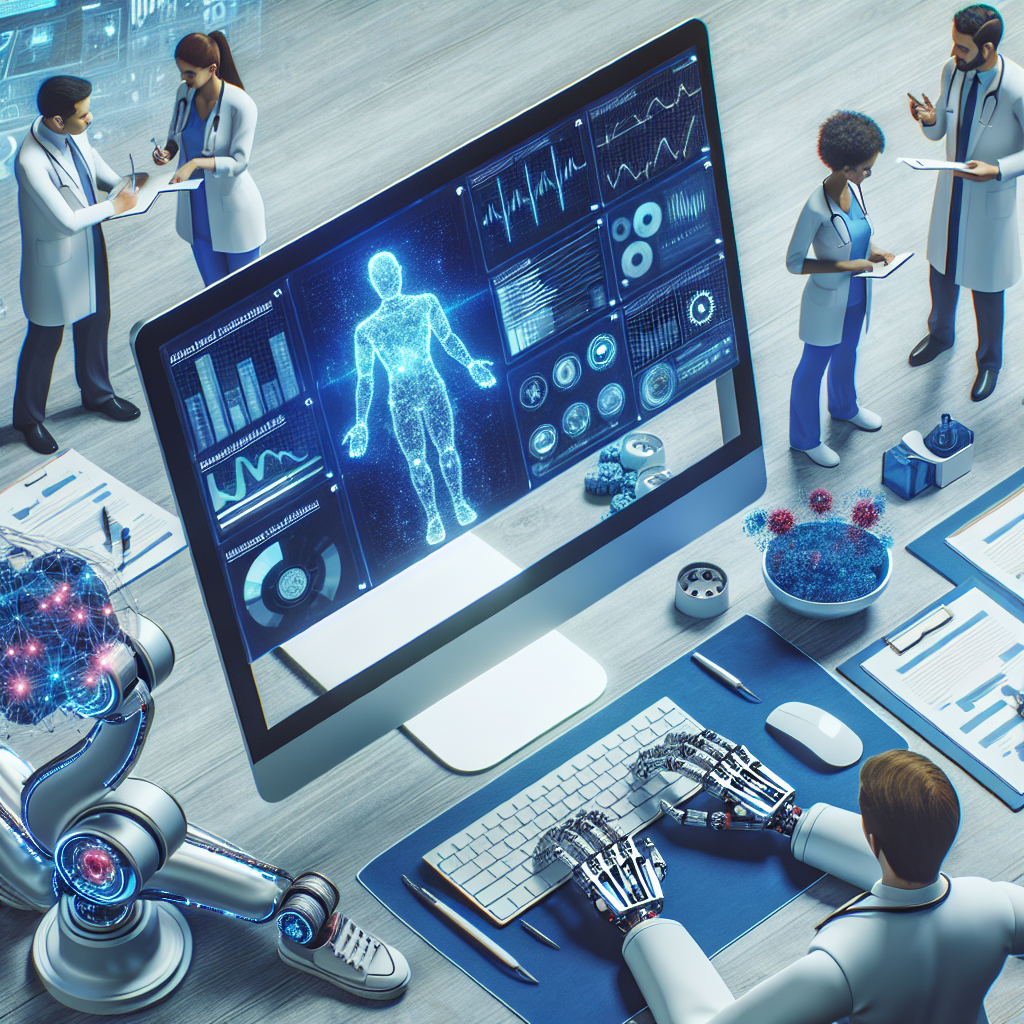Artificial Intelligence (AI) has revolutionized many industries, and healthcare is no exception. One of the key areas where AI is making a significant impact is in optimizing healthcare workflows. Healthcare workflows involve the coordination of various tasks and processes to ensure the efficient delivery of care to patients. AI can help streamline these workflows, improve efficiency, and ultimately enhance patient outcomes.
AI technologies such as machine learning, natural language processing, and computer vision can analyze vast amounts of data to identify patterns and make predictions. In the context of healthcare workflow optimization, AI can be used to automate routine tasks, prioritize patient care, and personalize treatment plans. This can help healthcare providers make more informed decisions, reduce administrative burden, and deliver better care to patients.
One of the main benefits of using AI in healthcare workflow optimization is the ability to improve the speed and accuracy of diagnosis. AI algorithms can analyze medical images, lab results, and patient records to detect patterns and anomalies that may be missed by human clinicians. This can help healthcare providers make faster and more accurate diagnoses, leading to better treatment outcomes for patients.
AI can also help streamline administrative tasks such as scheduling appointments, managing electronic health records, and processing insurance claims. By automating these routine tasks, healthcare providers can free up more time to focus on patient care. This can lead to improved efficiency, reduced costs, and better overall patient satisfaction.
Another key advantage of using AI in healthcare workflow optimization is the ability to personalize treatment plans for individual patients. AI algorithms can analyze patient data to identify the most effective treatment options based on a patient’s unique characteristics and medical history. This can help healthcare providers deliver more personalized care, leading to better outcomes for patients.
Overall, AI has the potential to transform healthcare workflow optimization by improving efficiency, accuracy, and patient outcomes. By harnessing the power of AI technologies, healthcare providers can streamline their workflows, reduce costs, and deliver better care to patients.
FAQs:
Q: How is AI being used to optimize healthcare workflows?
A: AI technologies such as machine learning, natural language processing, and computer vision are being used to automate routine tasks, prioritize patient care, and personalize treatment plans. This can help healthcare providers make more informed decisions, reduce administrative burden, and deliver better care to patients.
Q: What are the benefits of using AI in healthcare workflow optimization?
A: The benefits of using AI in healthcare workflow optimization include improved speed and accuracy of diagnosis, streamlined administrative tasks, and personalized treatment plans for patients. AI can help healthcare providers make faster and more accurate diagnoses, automate routine tasks, and deliver more personalized care to patients.
Q: How can healthcare providers implement AI in their workflows?
A: Healthcare providers can implement AI in their workflows by partnering with AI vendors, developing in-house AI capabilities, and integrating AI technologies into their existing systems. It is important for healthcare providers to work closely with AI experts to ensure a successful implementation and maximize the benefits of AI in healthcare workflow optimization.

